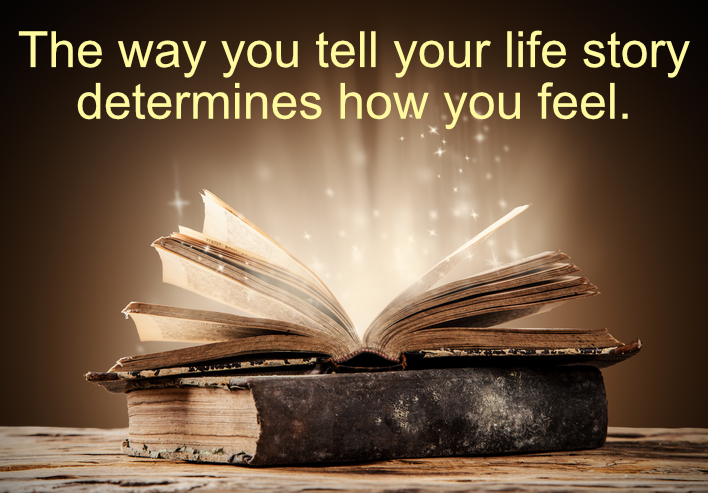 It’s now been several weeks since we started “social distancing” and staying at home to help prevent the spread of the COVID-19 virus as best we can. In some ways, we’re becoming used to it, and in many other ways we’re ready to be done with it. We’re weary and anxious because the uncertainty continues.
It’s now been several weeks since we started “social distancing” and staying at home to help prevent the spread of the COVID-19 virus as best we can. In some ways, we’re becoming used to it, and in many other ways we’re ready to be done with it. We’re weary and anxious because the uncertainty continues.
Some are drained from being on the front lines and continuing to interact with many ill and potentially ill people, while others are drained from being at home in close quarters with the same people for too long. At this stage, no one knows how much longer this will go on, but experts are indicating that it could be quite a few more weeks.
Social disconnection is bad for you. While the buzzword these days is social distancing, I’d like to encourage you to practice physical distancing and use creative ways to continue to connect socially. I have had a few Zoom meetings with colleagues and found them to be quite helpful–not the same as being in person, but it was still very beneficial to share my own feelings and hear how others are coping. You could try having a cup of coffee and a video chat with a friend, or maybe use a good old-fashioned phone call to connect. I heard of someone who is sending a game back and forth through the mail with a friend. Use your creativity!
Below are some links to helpful resources on dealing with this ongoing stress. Out of the many articles I’ve read, I have found these to be the most helpful.
That Discomfort You’re Feeling is Grief
https://hbr.org/2020/03/that-discomfort-youre-feeling-is-grief
Reducing the Risk of Emotional Fatigue During the Pandemic
https://www.psychologytoday.com/us/blog/smashing-the-brainblocks/202004/reducing-the-risk-emotional-fatigue-during-the-pandemic
Coping with Coronavirus Stress
https://www.psychologytoday.com/us/blog/modern-mentality/202003/coping-coronavirus-stress
Zoom Exhaustion is Real
https://www.mindful.org/zoom-exhaustion-is-real-here-are-six-ways-to-find-balance-and-stay-connected
Brené Brown’s podcast on Comparative Suffering https://brenebrown.com/podcast/brene-on-comparative-suffering-the-50-50-myth-and-settling-the-ball/
Here’s a final way to keep things in perspective–yes, we’re all in this together and experiencing unprecedented stress, but that does not minimize the stress you’re feeling individually as you cope with ongoing uncertainty. It’s important to care for yourself, managing the stresses you can and letting go of those you can’t.
You’ll find other helpful tips and information on grief, anxiety, and coping skills in the Katie’s Tips section.

Video counseling available. If you’re interested in having a telehealth (video) session with me, feel free to contact me or call 636-234-0035 and I’ll give you the instructions. Most insurance plans are covering telehealth sessions, but you’ll want to check with yours to be certain.
Be well!
Katie Walker
Board Certified Licensed Professional Counselor
636-234-0035



 That being said, it’s important to regularly fuel your emotional tank, so you’re ready for whatever life throws your way. Sometimes you can afford to fill up. Other times, fuel is expensive and you can only put $10 in the tank. Fill-ups of your emotional tank might include a vacation, or an evening laughing with friends. Things that add a little fuel to your tank could be a short walk on your lunch break, spending 30 minutes reading at the end of a busy day, or mindfully enjoying your morning coffee. Being mindful of the positive things all throughout the day puts a bit of fuel in your tank many times.
That being said, it’s important to regularly fuel your emotional tank, so you’re ready for whatever life throws your way. Sometimes you can afford to fill up. Other times, fuel is expensive and you can only put $10 in the tank. Fill-ups of your emotional tank might include a vacation, or an evening laughing with friends. Things that add a little fuel to your tank could be a short walk on your lunch break, spending 30 minutes reading at the end of a busy day, or mindfully enjoying your morning coffee. Being mindful of the positive things all throughout the day puts a bit of fuel in your tank many times. I’ve been working with a lot of clients lately who are grieving. The interesting part is, many of them have not had a loved one pass away, but instead are grieving some other type of loss. This might be a job, expectations of family life or how a friendship might progress, or it might be the loss of someone who is still living. This last type can happen when a relationship ends or people become impaired to the degree that “they’re not themselves” anymore.
I’ve been working with a lot of clients lately who are grieving. The interesting part is, many of them have not had a loved one pass away, but instead are grieving some other type of loss. This might be a job, expectations of family life or how a friendship might progress, or it might be the loss of someone who is still living. This last type can happen when a relationship ends or people become impaired to the degree that “they’re not themselves” anymore. February is marketed as the month of love, but what if I’ve been deeply hurt by someone who was supposed to love me? They say it’s important to forgive (which is true), but how do I go about that? Isn’t that just letting the person “off the hook”?
February is marketed as the month of love, but what if I’ve been deeply hurt by someone who was supposed to love me? They say it’s important to forgive (which is true), but how do I go about that? Isn’t that just letting the person “off the hook”?
 Did you know that work is important to your mental health? The recent celebration of Labor Day got me thinking about the value of work. I’m not only referring to a paid job. What I mean is that each of us needs to have a purpose (or more than one purpose) that we work toward, as this provides meaning in our lives.
Did you know that work is important to your mental health? The recent celebration of Labor Day got me thinking about the value of work. I’m not only referring to a paid job. What I mean is that each of us needs to have a purpose (or more than one purpose) that we work toward, as this provides meaning in our lives.
 Summer can be a time of refreshment or it can be draining. Some of this depends on circumstances, and some depends on your viewpoint of those circumstances! Let’s focus on the part we have the most say over: our view of things. Remember – how you think and behave affects how you feel, so choosing to focus on the positive aspects can have an impact on your outlook.
Summer can be a time of refreshment or it can be draining. Some of this depends on circumstances, and some depends on your viewpoint of those circumstances! Let’s focus on the part we have the most say over: our view of things. Remember – how you think and behave affects how you feel, so choosing to focus on the positive aspects can have an impact on your outlook.